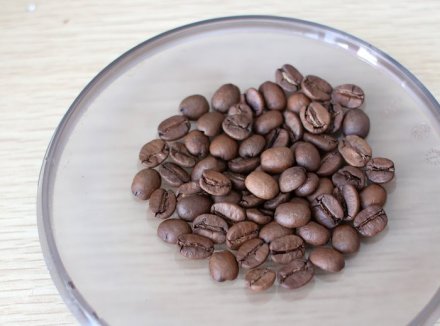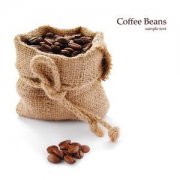Coffee Culture Story Serbian Coffee Culture
In Europe and America, people have made coffee a part of their daily lives, and they have become accustomed to making a cup of coffee in the morning to start their day. Coffee as a Western drinking culture, just like Chinese tea culture, also has a long historical background.
Coffee has become a worldwide drink, and there are different favorite ways and preparation methods in different countries and regions. The famous German composer Bach's praise for coffee is "drunk without drinking". He wrote in his composition "Coffee Cantata": This black drink is better than hundreds of sweet kisses and more subtle than Muscat wine. Beethoven's unique and demanding requirements for brewing coffee have not been understood so far. He requires that 60 coffee beans must be ground for each cup of coffee, no more or less. Serbs not only like coffee, but often chat in small groups in cafes, using cafes as meeting and social places. It is said that there is a coffee museum with the theme of "Coffee Road" in the small town of Simanovci on the outskirts of Belgrade, the capital. Not long ago, the reporter made an appointment to visit the "Coffee Museum" with a curious mood.
Half an hour outside Belgrade, we arrive at the famous Dunbrand coffee processing plant, while the Coffee Museum is "hidden" in the factory compound. Oli Velajokic, general manager of the company, told us that the coffee museum, called Coffee Road, was founded in 2005 to promote the "Dun" coffee processing plant in Serbia. It is also a window into Serbian coffee culture.
According to the general manager's arrangement, we first tasted all kinds of coffee in the mini cafe of "Coffee Museum". Most people would choose "domaki," which is Serbian traditional coffee, or "Turkish" brewed coffee, or "espresso." After coffee tasting, the general manager took us to visit the coffee processing equipment exhibition hall. There we find hand-operated copper coffee grinders in early Serbian homes and motorized grinding machines from the middle of the last century. General Manager Velajokic pointed to one of the machines and said that the machine used the principle of stone mill in China. The inside of the machine was actually a stone mill, which was very easy to use until the "Dunpai" coffee processing plant was completed.
The word "Don" means "sir" in Italian, and literally translates to "sir" coffee, one of the best selling brands in Serbian supermarkets. For a long time, we thought that this coffee with its distinctive aroma was imported from a European country. In fact, this is a Serbian state-owned brand, which has been famous throughout the Balkans since Yugoslavia. At present, this modern factory covers an area of 33000 square meters, from roasting, grinding to packaging of coffee beans is completely electronically controlled closed one-stop operation, more perfectly retaining the "original flavor" of coffee. "Dunpai" coffee processing plant has a daily output of 40 tons, of which 12 tons are instant coffee. It is the largest "Dunpai coffee" processing base in Southeast Europe. The raw materials for processing mainly come from Brazil, India, Colombia, Guatemala and other countries in the world. At present, the factory's products are only for domestic demand and not exported.
Mr. Velajokić said that Serbia also has a coffee processing plant called Glen, which is bigger than Dun. As coffee culture takes root, global demand for coffee beans continues to rise. It is estimated that coffee beans may become the primary raw material after oil in the global raw material trade. He concluded by adding that once coffee culture prevails in a large country like China, the world coffee market will be popular, and if coffee cultivation fails to keep up, coffee beans may become as expensive as gold.

Important Notice :
前街咖啡 FrontStreet Coffee has moved to new addredd:
FrontStreet Coffee Address: 315,Donghua East Road,GuangZhou
Tel:020 38364473
- Prev

The History of Coffee in the early European Cafe era
In the 21 century, mankind entered the era of information. If you want to know today's international news, entertainment gossip, stock market, bank exchange rate, product price, if you want to know the background strength of a company or the development trend of a cutting-edge discipline. Your first choice is to surf the Internet! The developed Internet technology has fundamentally changed the information channels of human life.
- Next

Coffee Culture the Story of Fine Coffee Culture in Arabia
When Europeans first came into contact with coffee, they called the seductive drink Arabian wine, and when conservative Catholics cursed coffee as the devil's drink, they never thought of what a precious thing they inherited from the pagans. As the first region in the world to drink and produce coffee, Arab coffee culture is like it.
Related
- How did the Salvadoran coffee industry develop in Central America?
- What exactly does the golden cup extraction of coffee mean?
- The Origin of Coffee flower
- [2023 Starbucks World Earth Day] there are more meaningful things besides free Starbucks coffee!
- What kind of coffee is there in Spain? 9 Flavors of Spanish Coffee
- Aromatic African coffee| Kenya's coffee culture and historical production area
- Liberica Coffee Bean knowledge: the characteristics of Liberian Coffee beans of the three original species of Coffee beans
- The origin and formula of Spanish latte introduces the taste characteristics of Bombon coffee in Valencia, Spain.
- How to adjust the solution of over-extracted coffee
- What is the tasting period of coffee beans? What is the period of coffee and beans? How should coffee wake up and raise beans?

